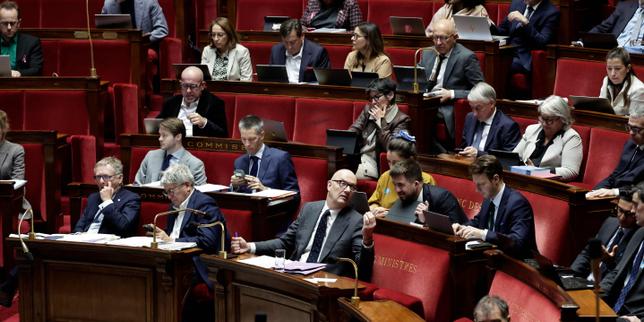French National Assembly Deliberates 2026 Social Security Budget Amid Pension Reform Suspension and Tax Controversies
The 2026 French Social Security budget debate intensifies with pension reform suspension, tax hikes on capital, and rejected health insurance surtaxes, sparking political conflicts.
- • The retirement reform is suspended until January 2028, costing 100 million euros in 2026 and 1.4 billion euros in 2027.
- • The social affairs committee rejected the government's proposed surtax on health mutuals to fund the pension reform suspension due to patient burden concerns.
- • The General Social Contribution (CSG) on capital incomes was increased from 9.2% to 10.6%, generating an estimated 2.7 billion euros.
- • Opposition criticized spending and revenue forecasts as insincere and insufficient, with debates ongoing about pension freezes and health insurance spending controls.
Key details
The French National Assembly has commenced detailed examination of the 2026 Social Security budget bill, stirring significant political debate and controversy. Deputies are discussing some 1,500 amendments that aim to balance rigor in spending control with social welfare needs. A critical development is the suspension of the retirement reform, postponing the increase of the retirement age to 64 until January 2028 — a move estimated to cost 100 million euros in 2026 and 1.4 billion euros in 2027. The government proposes funding this suspension partly through a controversial tax on health mutuals, but the social affairs committee has rejected this surtax due to concerns it would unfairly burden patients and discourage health insurance enrollment.
Meanwhile, taxation changes have further complicated the budget's acceptance. Deputies voted to increase the General Social Contribution (CSG) on capital incomes from 9.2% to 10.6%, projected to generate an additional 2.7 billion euros. This move came after the parliamentary committee discarded a government plan to freeze the CSG scale, a proposal seen by opponents as an indirect tax hike on modest households. Left-wing and centrist deputies criticized the freeze, while Macronist deputies abstained on the CSG increase, leaving room for fiscal justice negotiations.
Additional contentious measures include a freeze on pensions and social benefits in 2026 to save 3.6 billion euros, restrictions on health expenses growth limited to 1.6% despite natural increases around 4%, and increased patient co-payments on medical consultations and medications. The National Assembly is expected to vote on the bill on November 4, with a final vote scheduled for November 12. The Senate, led by right and centrist parties, is poised to reinstate the pension reform if the suspension passes.
This article was translated and synthesized from French sources, providing English-speaking readers with local perspectives.
Source articles (3)
Source comparison
Latest news
Katy Spicher Sues French State for Denial of Justice Over Unsolved 1983 Murder of Her Mother
French Public Sees Rise in Political Violence Amid Pre-Municipal Election Tensions
Businesses Drive French Economy Amid Rising Financial Challenges for Youth
France Climbs to 4th Place in 2026 Winter Olympics Medal Table After Biathlon Relay Gold
XV de France to Field Largely Unchanged Lineup Against Italy in Six Nations
France and India Deepen Strategic Partnership with Focus on AI Regulation and Defense Cooperation
The top news stories in France
Delivered straight to your inbox each morning.


